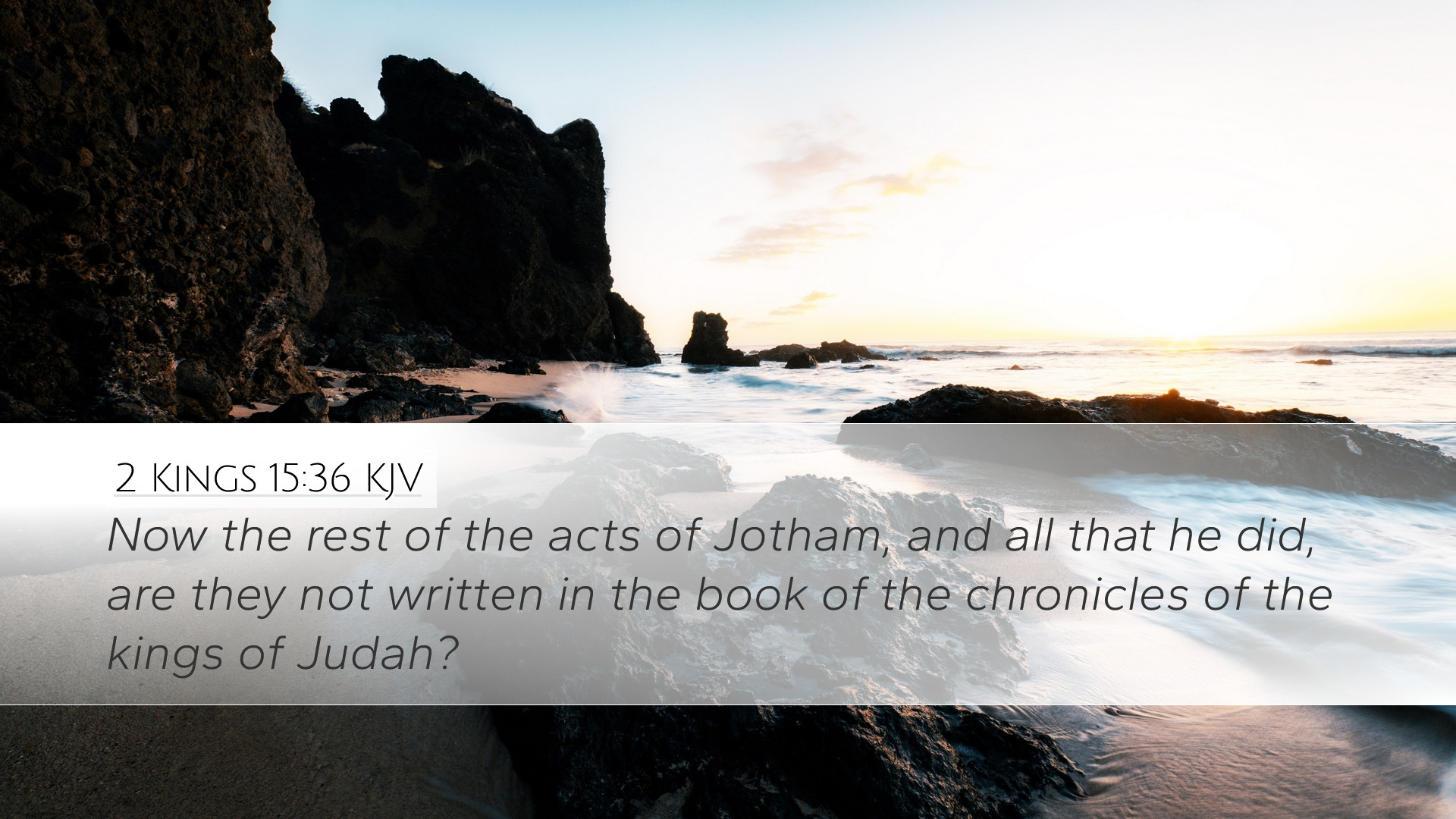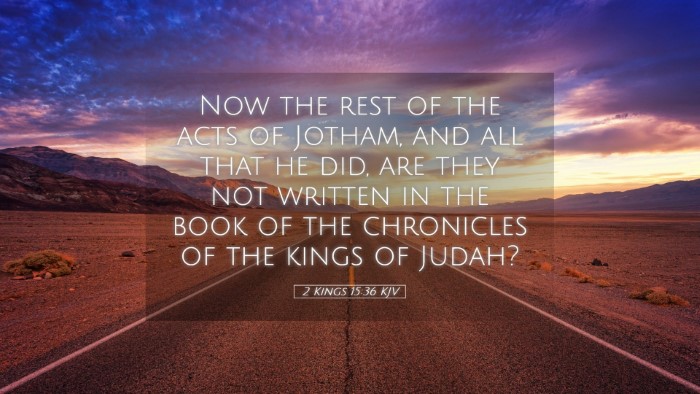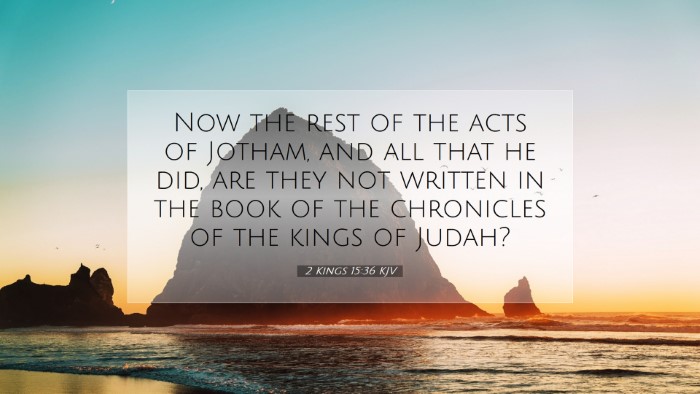Commentary on 2 Kings 15:36
Verse: “Now the rest of the acts of Jotham, and all that he did, are they not written in the book of the chronicles of the kings of Judah?”
Introduction
This verse serves as a concluding remark regarding King Jotham of Judah, highlighting the importance of the historical records concerning the kings. It indicates that while the biblical narrative may not include every detail of a king's reign, it provides a broad overview and encourages a study of the historical chronicles for deeper understanding.
Historical Context
The mention of the "book of the chronicles of the kings of Judah" points to the use of historical records in understanding the reigns of these monarchs. As observed by Matthew Henry, this is a reminder of the way God preserved history through human records, allowing for the examination of divine providence over His people.
- Significance of Historical Records: The chronicles were used not only as a historical account but served a theological purpose, demonstrating God's sovereignty and faithfulness throughout Israel's history.
- Jotham's Place Among Kings: As Henry emphasizes, Jotham's reign revealed a mixture of faithfulness and challenges, reflecting the condition of Israel at that time.
Thematic Elements
1. The Importance of Legacy: Jotham’s reign is compounded by the legacy he left, as well as the actions of his predecessors and successors. Albert Barnes observes that the chronicled actions indicate the moral and spiritual state of the nation during his reign.
2. Accountability Before God: The reference to the acts recorded in the chronicles reminds us that every ruler, much like each individual, will ultimately be accountable for their actions. Adam Clarke elucidates this point, noting that God's judgment reflects the righteousness of the nation's leaders.
Theological Insights
This verse allows for a rich exploration of divine providence. The attention to historical acts suggests a continuous thread of God's engagement with humanity, something that is echoed throughout the entirety of 2 Kings. Key Insights Include:
- God's Sovereignty: The chronicling of historical acts demonstrates that every event is under God's sovereign oversight, shaping the narrative of His people.
- God’s Faithfulness: Even when leaders may falter, God's ongoing plan and promises remain intact, moving toward the ultimate restoration through Christ, as indicated in prophetic scriptures.
Practical Applications
For pastors and leaders today, this verse serves as a powerful reminder of the importance of legacy and accountability in leadership. It calls for an examination of our actions and their implications for future generations. As indicated by Clarke's analysis:
- Reflection on Leadership: Leaders are encouraged to seek righteousness in their actions, understanding that their deeds contribute to a greater narrative that serves God's kingdom.
- Encouragement for In-depth Study: The mention of the chronicles prompts a call for deeper engagement with historical texts to better understand God’s dealings with humanity.
Conclusion
In summary, 2 Kings 15:36 encapsulates the significance of Jotham's reign amidst the broader narrative of Israel’s history. The verse beckons the reader towards understanding God's providence through historical records while challenging leaders to live in accountability. As stated by Barnes, the acts recorded in history yield not only informational but transformational insights for the present day, urging us to engage with Scripture earnestly.


